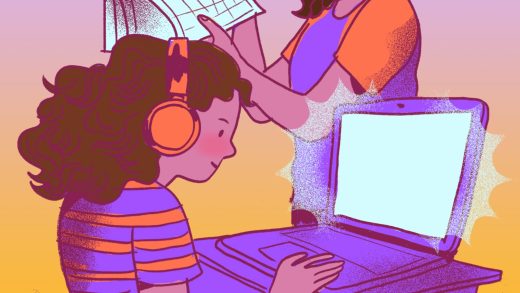Ten questions about teaching writing with Ryan Britt, author of “Luke Skywalker Can’t Read”
I n our series “Can Writing Be Taught?” we partner with Catapult to ask their course instructors all our burning questions about the process of teaching writing. This time, we’re talking to Ryan Britt, who’s teaching an online class about writing essays geared towards literary magazines and digital publications (like Electric Lit!). His essay collection Luke Skywalker Can’t Read is a work of pop cultural criticism ranging from Dracula to Doctor Who. The current run of Ryan’s class is sold out, but you can sign up to be notified when it returns this summer.

What’s the best thing you’ve ever gotten out of a writing class or workshop as a student?
In a workshop called Sirenland, Dani Shapiro directly told me that certain turns of phrase simply did not belong with the kind of writing I was doing. The idea that my voice on the page needed to be focused — and not a hodgepodge of tones — was an important moment for me. I think before that, I really thought I could get away with all sorts of different voices at once.
What’s the worst thing you’ve ever gotten out of a writing class or workshop as a student?
I once had someone recommend that I give a person in a nonfiction essay an accent they did not have. It was a sure sign the person did not understand the ethics of writing nonfiction, nor did they understand why employing various accents or dialects for no reason is inherently offensive.
What is the lesson or piece of writing advice you return to most as an instructor?
The idea that writing is re-writing is perhaps the most important thing anyone can ever learn. It’s very hard to accept when you’re first starting out, and sometimes just as hard when you’ve been writing for years and years.
The idea that writing is re-writing is perhaps the most important thing anyone can ever learn.
Does everyone “have a novel in them”?
No! Sometimes someone has an essay collection! Or a memoir!
Would you ever encourage a student to give up writing? Under what circumstances?
Probably not. But, I have encouraged people to take a break. Sometimes with nonfiction, I see students who are too close to tender material they’re writing about. In those cases, I’ve encouraged them to take a break and write about something else.
What’s more valuable in a workshop, praise or criticism?
Neither. A workshop should be a place where a writer can be given a new strategy for dealing with a problem they suspect they already have. The most valuable thing a writer can get in a workshop is a kind of map or tactic for tackling a difficult edit.
Should students write with publication in mind? Why or why not?
Sometimes. When it comes to writing essays, limitations can be useful. So, word counts, thematic suggestions, and other guidelines set by an existing publication can help a writer focus. The piece might not end up in that publication, but having a professional goal for the piece in mind isn’t always a bad thing. Would you want to read this piece in a magazine or on a website you love? Answering that questions honestly can help writers work thru hard revisions, and sometimes let go of biases they have about their own work.
Crystal Hana Kim Thinks Worrying About Publication Kills Creativity
In one or two sentences, what’s your opinion of these writing maxims?
- Kill your darlings: This is creepy. I think it should be rewritten as “Don’t be so proud of yourself all the time.”
- Show don’t tell: In non-fiction, you often have to tell quite a lot. I like to tell my classes “Show AND Tell.”
- Write what you know: If you know very little, this is a bummer. If you know about a lot, or are curious to know new things, then this is great.
- Character is plot: Sherlock Holmes exists in 56 short stories and four novels. All of those plots are very different. I mean, I suppose saying “character is story” is fine. A story is not a plot. Then again, George Lucas supposedly borrowed all sorts of archetypal characters from antiquity, but I’d argue the story he made with those characters is pretty different from the source material. I think intent matters more than anything.
What’s the best hobby for writers?
Reading. Anything but bad TV. I don’t know. I dislike the word “hobby,” to be honest. I’ve never had a hobby. I’ve had a lot of interests, though.
What’s the best workshop snack?
Something that doesn’t make noise and that no one even knows you’ve eaten.


If You Don’t Have a Novel In You, Maybe You Have a Memoir was originally published in Electric Literature on Medium, where people are continuing the conversation by highlighting and responding to this story.
Source : If You Don’t Have a Novel In You, Maybe You Have a Memoir














